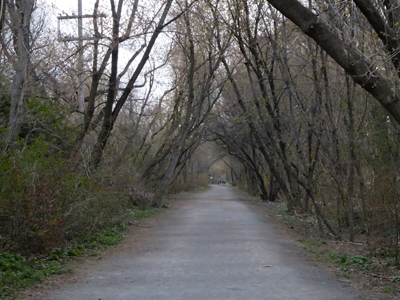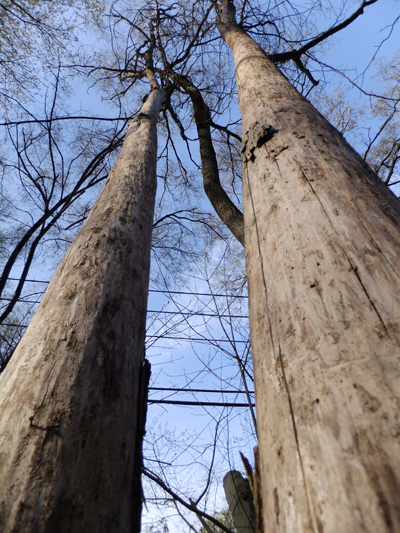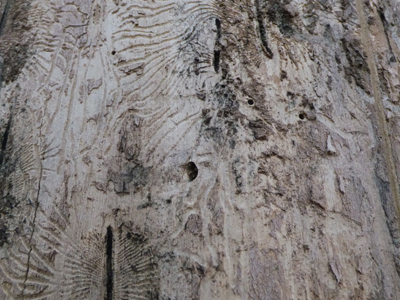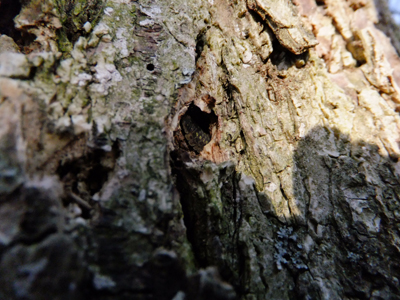With a group of eager volunteers, I attended a specialized training session and picked out city parks to examine and prepare a report on that could help the City with their EAB strategy. I chose the Kay Gardner Beltline because it is one of my favourite urban parks. This little-known place is actually a 4.5km-long trail that begins at Eglinton Ave. and Allen Rd. and runs down to Mt. Pleasant Cemetery, which is one of the greatest spots to find giant mature trees in the city. On warm mornings and most evenings, the trail is bustling with runners, dog walkers and cyclists, all enjoying this lovely natural escape in the middle of the city. I'm fascinated by its history. This trail used to be part of the Toronto Belt Line Railway, which was built in the 1890s and encircled the City of Toronto.

The path of the Kay Gardner Beltline
As part of the survey, my task was to count healthy mature ash trees that should be considered for treatment and to note any signs of infestations. After spending several hours slowly walking the trail on an early morning in March, my count totaled approximately 30 mature ash trees. I say approximately because it is only now that leaves are starting to come out – and without foliage it can be quite the challenge to accurately identify trees! I found it difficult to distinguish the “sliced” bark of ashes from those that are similar like maple and oak. Aside from bark, the only other two signs to use in the winter are the form of the crown (shape of the branches) and any left-over “paddle”-shaped seeds on the ground.

Unhappy trees
To my dismay, I came across at least five trees that were still standing, but dead. And three of them had burrowing patterns under the bark that looked alarmingly similar to the Emerald Ash Borer’s from our training booklets! I hope it isn’t so, but these could be early signs that the bug has made its way into the city’s core. I am worried for this favourite park of mine, and have reported my findings back to LEAF.

Galleries under the bark of a tree
On my walk through again yesterday, I came across another seemingly infested tree. This doesn't look like EAB, but I wonder what it could be? On the photo below you can see an insect's back end sticking out of the hole. There were lots of these on one poor tree, unfortunately my camera ran out of juice before I could take a close up.

Mystery bug
Now that you’ve seen the photos - what do you think? Have you seen similar burrowing patterns in your neighbourhood? I’m curious to find out what it is. Let me know!
